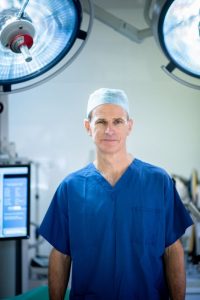Patient Information FAQ
Our Head of Institute, Professor Middleton, answered some of the most commonly asked questions about total hip replacement surgery.
Question: How do we make hip replacement more successful?
Professor Middleton: “Hip replacement is already the most successful operation you can have. Operations are compared by health systems in terms of quality of life adjusted years they give to a patient [QALY]. One QALY equates to 1 year of perfect health. When you compare all operations, including all cancer and cardiac procedures, hip replacement has the best outcomes.”
Question: What are you doing to improve it?
Professor Middleton: “It is difficult to improve an operation that works so well, and until now there has been no obvious way to do so. Implant design, surgical technique, anaesthetic and rehabilitation programmes are already as close to perfect as they are ever likely to be and any future improvements are likely to be minor. This is where new technology can be used to take hip replacements to the next level. Robotic assisted surgery allows the hip replacement components to be placed in the best and most accurate position. More accurately and more consistently than even an experienced surgeon. This should lead to better outcomes for patients.”
Question: Should all operations now be robotic?
Professor Middleton: “A standard hip replacement, without robotic assistance, remains an excellent operation. Although robotic assisted hip replacement is the latest development, most people will still be having a standard hip replacement for the foreseeable future. You should have no concerns about this and are most likely to be very pleased with the outcome. The best hip replacements have a 10A* rating. This means that studies have shown they will last 10 years or more in 95% of cases.”
Question: What is the recovery time for a total hip replacement?
- Average length of stay in hospital is between 2-4 days.
- You will be off crutches and sticks within 2-6 weeks
- You are usually able to drive within 6 weeks.
- You may fly again from 6 weeks
- Return to full activity including sport, tennis and golf is from around 3 months.
- Full recovery will occur by 1 year following surgery





